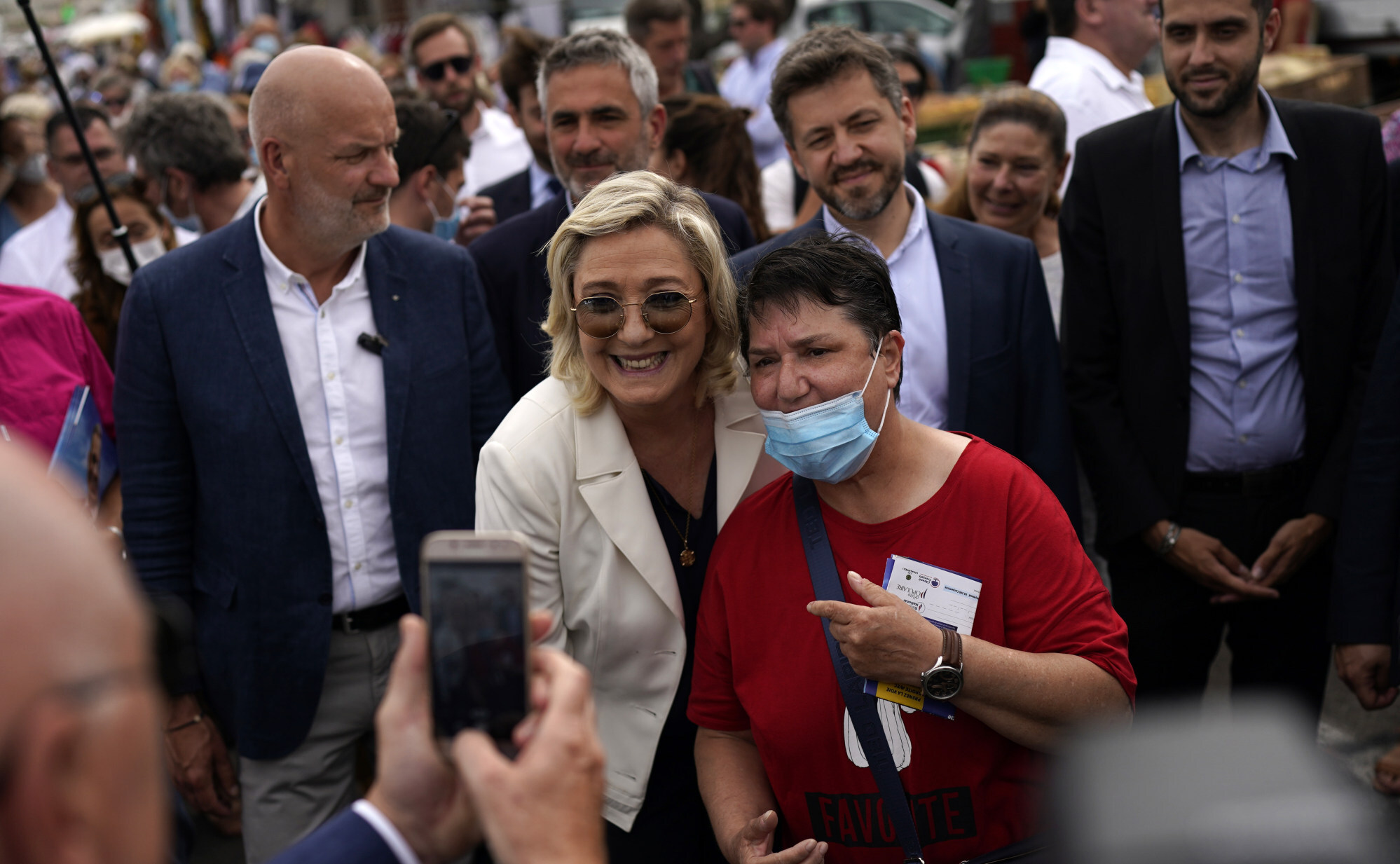
France’s far-right politician Marine Le Pen could gain first victory in regional elections
- Le Pen’s party could win a few regional councils, including the country’s second-most populous city and the French Riviera, according to recent surveys
- The results will not necessarily translate into a breakthrough at the national level next April when voters will choose to keep President Emmanuel Macron or replace him
Marine Le Pen’s far-right party looks set to win control of at least one French region for the first time ever in elections starting on Sunday, in a sign her campaign is building momentum before next year’s presidential contest.
Polls open at 8am, with the results expected to start trickling in at around 8pm. The second, and final, round is on June 27.
Le Pen’s party could win a few regional councils, including Provence-Alpes-Cote-d’Azur, the area around Marseille, the country’s second-most populous city, and the French Riviera, as well as the eastern region of Bourgogne-Franche-Comte that is home to Dijon, according to recent surveys.
The results will not necessarily translate into a breakthrough at the national level next April when voters will choose to keep President Emmanuel Macron or replace him. But they may help Le Pen make the case that her party can be trusted in power.
The presidential election is widely expected to be a repeat of 2017 when Le Pen was Macron’s main rival, and with Le Pen narrowing the gap with Macron in all major polls, his allies are feverishly watching the regional ballot for signs she can close it even further.
Regional jurisdiction includes things like education and waste management. It does not tend to include security matters, but that along with immigration and the role of religion in society, has been a key theme of this election and a topic Le Pen’s lieutenants are supremely comfortable with.

Macron’s party did not even exist in the last regional election in 2015. The president has sent his ministers on the campaign trail and as candidates, but his movement has so far failed to create strong local bases and would likely need to team up with other parties to win any region.
For the conservative Republicans and the Socialists, the challenge is to hold onto regions they dominated for years before Macron imploded the two-party system with his centrist run. Newer movements like the Greens and the France Unbowed party of far-left firebrand Jean-Luc Melenchon will test the grounds for local alliances with other left-wing parties.
France’s 12 mainland regions along with Guadeloupe and La Reunion are voting for candidates to fill regional council seats. Corsica, Martinique and French Guiana are casting ballots to fill seats in their territorial assemblies.
Only lists that obtain more than 10 per cent will make it to the second round. Slates that win more than 5 per cent are allowed to merge with others. Expect tough negotiations from Monday to divide the spoils.
The key question then will be whether parties are willing to uphold the “Republican Front”.
The term refers to a strategy by left or right-wing parties to withdraw from the race or call for their supporters to vote for their rivals just to block the far-right from gaining power. It has worked in the past, but may not this time.

